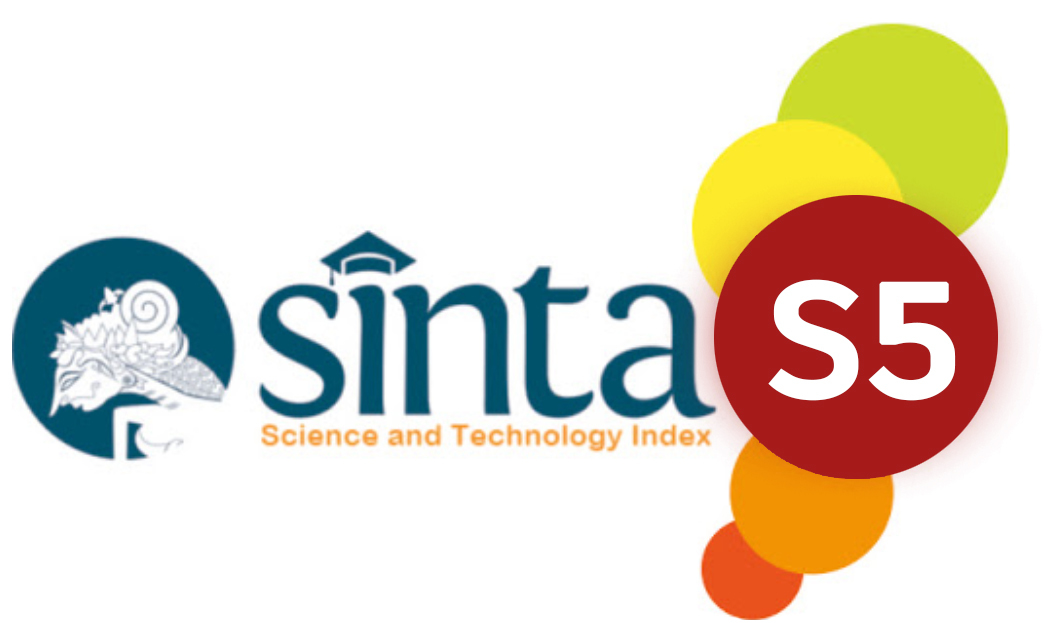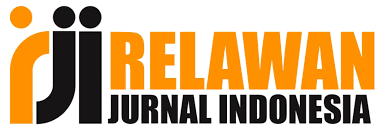Customer Decisions in Islamic Gold Pawning: The Role of Service Excellence and Sharia Compliance in Rural Indonesia
Abstract
The development of the Islamic banking industry demands excellent service and consistent implementation of Islamic governance principles to maintain and increase customer trust. Islamic People's Financing Banks (BPRS), although the institution is between commercial banks and microfinance institutions, are required to be able to compete through service excellence and Islamic compliance. This study aims to determine the effect of excellent service and Islamic governance on customer decisions in using gold pawn products at BPRS Bhakti Sumekar KCP Pragaan. This study uses a quantitative approach with multiple linear regression analysis techniques. The sample was taken using probability sampling techniques, with 46 respondents who were active users of gold pawn products. Data were collected through a structured questionnaire. The results of the study indicate that the two independent variables, namely excellent service and Islamic governance, have a positive and significant effect on customer decisions. Simultaneously, the two variables contribute 95.8% to customer decision making, while the remaining 4.2% is influenced by other factors outside the research model. The novelty of this research lies in the integrative focus between service and sharia aspects in the context of gold pawn products at BPRS, which has not been studied empirically in previous literature, especially in rural areas such as Pragaan.
Keywords
References
Adawiyah, Mukhibbatul, and Noven Suprayogi, ‘Analisis Faktor-Faktor Yang Mempengaruhi Tingkat Pengungkapan Shariah Governance Pada Bank Umum Syariah Analisis Pada Laporan Tahunan Periode 2013-2017’, Jurnal Ekonomi Syariah Teori Dan Terapan, 6.11 (2020), p. 2347, doi:10.20473/vol6iss201911pp2347-2360
Argantara, Zaid Raya, and Ahmad Choiri, ‘The Effect of Banking Digitalization Through Self-Service Technology on Satisfaction and Loyalty’, Iqtishodiyah: Jurnal Ekonomi Dan Bisnis Islam, 9.2 (2023), pp. 187–95, doi:10.55210/iqtishodiyah.v9i2.1052
Argantara, Zaid Raya, and Nabilatul Fitriyah, ‘The Effect of Profit-Sharing Financing on the Financial Performance of Islamic Banks’, Jurnal Ilmiah Manajemen Kesatuan, 11.3 (2024), pp. 1345–54, doi:10.37641/jimkes.v11i3.2329
Arinta, Yusvita Nena, ‘Analisis Perbandingan Kinerja Keuangan Antara Bank Syariah Dan Bank Konvensional (Studi Kasus Pada Bank Syariah Mandiri Dan Bank Mandiri)’, Muqtasid: Jurnal Ekonomi Dan Perbankan Syariah, 7.1 (2016), p. 119, doi:10.18326/muqtasid.v7i1.119-140
Azmy, Ahmad, ‘Analisis Pengaruh Rasio Kinerja Keuangan Terhadap Profitabilitas Bank Pembiayaan Rakyat Syariah Di Indonesia’, Jurnal Akuntansi, 22.1 (2018), pp. 119–37, doi:10.24912/ja.v22i1.326
Farhan Hamim, Rafiqi, Iqbal, ‘Reduction of Excellent Service Strategy in Increasing Customer Loyalty at BPRS Bhakti Sumekar Madya Pamekasan Branch Office’, Masyrif : Jurnal Ekonomi, Bisnis Dan Manajemen, 4.2 (2023), pp. 253–64
Fure, Joey Allen, ‘Fungsi Bank Sebagai Lembaga Keuangan Di Indonesia Menurut Undang-Undang Nomor 10 Tahun 1998 Tentang Perbankan’, Lex Crimen, V.4 (2016), pp. 116–22
Gusmelia, Inova, Berly Nisa Srimayarti, Tri Wijayanto, Devid Leonard, Wilson Leonardo Harefa, Wulan Sari, and others, ‘Pelatihan Service Excellence Karyawan Guna Meningkatkan Kualitas Pelayanan Di RSIA Mutiara Bunda’, Jurnal Abdidas, 3.3 (2022), pp. 607–11, doi:10.31004/abdidas.v3i3.636
Hanafi, Rustam, Abdul Rohman, and Dwi Ratmono, ‘How Do Sharia Supervisory Board and Good Corporate Governance Relate to Islamic Banks Performance?’, Share: Jurnal Ekonomi Dan Keuangan Islam, 10.2 (2021), p. 234, doi:10.22373/share.v10i2.11112
Harianto, Syawal, ‘Rasio Keuangan Dan Pengaruhnya Terhadap Profitabilitas Pada Bank Pembiayaan Rakyat Syariah’, Esensi, 7.1 (2017), pp. 41–48, doi:10.15408/ess.v7i1.4076
Maulana, Fauzan Ibnu, ‘Pengaruh Pembiayaan Murabahah, Musyarakah, Dan Biaya Transaksi Terhadap Profitabilitas Bank Pembiayaan Rakyat Syariah 2018-2021’, Mabny : Journal of Sharia Management and Business, 2.01 (2022), pp. 241–48, doi:10.19105/mabny.v2i01.5375
Maulyan, Feti Fatimah, Devi Yuniati Drajat, Ria Yuli Angliawati, and Dwi Sandini, ‘Pengaruh Service Excellent Terhadap Citra Perusahaan Dan Loyalitas Pelanggan: Theoretical Review’, Jurnal Sains Manajemen, 4.1 (2022), pp. 8–17, doi:10.51977/jsm.v4i1.660
Maysyaroh, Siti, Aam Slamet Rusydiana, and Dewi Febriani, ‘Zillennial Perceptions of Sharia Governance Implementation and Its Implications on the Reputation, Trust, and Loyalty of Islamic Banks’, Jurnal Ekonomi Syariah Teori Dan Terapan, 11.1 (2024), pp. 105–20, doi:10.20473/vol11iss20241pp105-120
Mulianita, Asti, Sutarti, and Triandi, ‘Pengaruh Dewan Komisaris Dan Komite Audit Terhadap Kinerja Keuangan Perbankan Syariah Yang Terdaftar Di Bank Indonesia’, JIAKES: Jurnal Ilmiah Akuntansi Kesatuan, 7.1 (2019), pp. 219–23
Nguyen, Long Le Hoang, ‘Ethical Leadership and Public Service Recovery Performance: The Roles of Thriving at Work and Moral Self-Efficacy’, International Journal of Organization Theory & Behavior, ahead-of-p.ahead-of-print (2025), doi:10.1108/IJOTB-05-2024-0096
Nur, Muhammad, ‘Kualitas Pelayanan Prima Pada PT PLN (Persero) Rayon Makassar Selatan’, Jurnal Office, 3.1 (2017), p. 72, doi:10.26858/jo.v3i1.3501
Oktaviana, Ulfi Kartika, and Titis Miranti, ‘Factors Affecting Financial Stability of Sharia Banks in Indonesia’, Shirkah: Journal of Economics and Business, 9.2 (2024), pp. 213–28, doi:10.22515/shirkah.v9i2.563
Rafiqi, Iqbal, and Zulha Fauli Majdi, ‘Pengaruh Dana Pihak Ketiga (DPK), Capital Adequacy Ratio (CAR), Non Performing Financing (NPF) Terhadap Pembiayaan Pada PT. Bank Muamalat Indonesia Periode 2018-2022’, Values: Jurnal Kajian Islam Multidisiplin, 2.3 (2025), pp. 367–77
Rahman, Holilur, Idha Mujibno, Suhartatik, and Abdullah Muhammady, ‘Determinan Sharia Compliance Dalam Pengumpulan ZIS Melalui Budaya Kencleng’, Masyrif : Jurnal Ekonomi, Bisnis Dan Manajemen, 4.2 (2023), pp. 222–40, doi:10.28944/masyrif.v4i2.1333
Rahmi, Febri, Leny Nofianti, Andi Irfan, and Desrir Miftah, ‘Sharia Governance Dan Kinerja Lembaga Keuangan Syariah: Firm Size Sebagai Pemoderasi’, Jurnal Al-Iqtishad, 14.2 (2019), p. 89, doi:10.24014/jiq.v14i2.6793
Raya Argantara, Zaid, Ahmad Rofiki, Muhammad Deni Putra UIN Mahmud Yunus, Sari Utami, and Kata Kunci, ‘At-Tasharruf; Jurnal Kajian Ekonomi Dan Bisnis Syariah Examining the Relationship Between Price to Earnings Ratio (PER), Inflation, and Stock Returns in Indonesian Sharia Banking from 2018 to 2022’, At-Tasharruf; Jurnal Kajian Ekonomi Dan Bisnis Syariah, 6.1 (2024), pp. 68–77
Rifa’i, Achmad, ‘The Role of Islamic People’s Financing Banks in Implementing Inclusive Finance Through MSME Financing’, Human Falah, 4.2 (2017), pp. 194–217
Rusli Romadhoni, Iqbal Rafiqi, Imani, ‘Strategi Marketing Syariah Tabungan Gaul IB Bagi Generasi Millenial Pada BPRS Bhakti Sumekar Sumenep’, Ilmu Manajemen, 1.2 (2021), pp. 66–71
Sugiyono, Metode Penelitian Kuantitatif, Kualitatif, Dan R&D (ALFABETA, 2019)
Tsamara, Aisyah Nila, and Jaka Nugraha, ‘Penerapan Service Excellence Sebagai Upaya Peningkatan Kualitas Layanan Humas Pemerintah Kota Surabaya (Studi Pada Koridor Co-Working Space)’, Jurnal Pendidikan Administrasi Perkantoran (JPAP), 9.1 (2020), pp. 224–35, doi:10.26740/jpap.v9n1.p224-235
Wathani, M Zainul, and Afiati Kurniasih, ‘Concept of Islamic Banking Service Excellence By the Qur’an’, Jurnal Nisbah, 1.1 (2015), pp. 1–22
Zaid Raya Argantara, Faizah Fauzi, ‘Implementasi Produk Pembiayaan Mitra Umkm 0% Di Bprs Bhakti Sumekar Cabang Pragaan (Studi Efektivitas Dan Mitigasi Risiko)’, 12.1 (2025), pp. 312–27
Zaid Raya Argantara, and Nurul Annisa, ‘Analisis Faktor-Faktor Minat Nasabah Dalam Menabung Di Bank Syariah’, An-Nisbah: Jurnal Perbankan Syariah, 4.2 (2023), pp. 255–66, doi:10.51339/nisbah.v4i2.1131
DOI: 10.28944/masyrif.v6i1.2111
Refbacks
- There are currently no refbacks.

This work is licensed under a Creative Commons Attribution-NonCommercial-NoDerivatives 4.0 International License.



